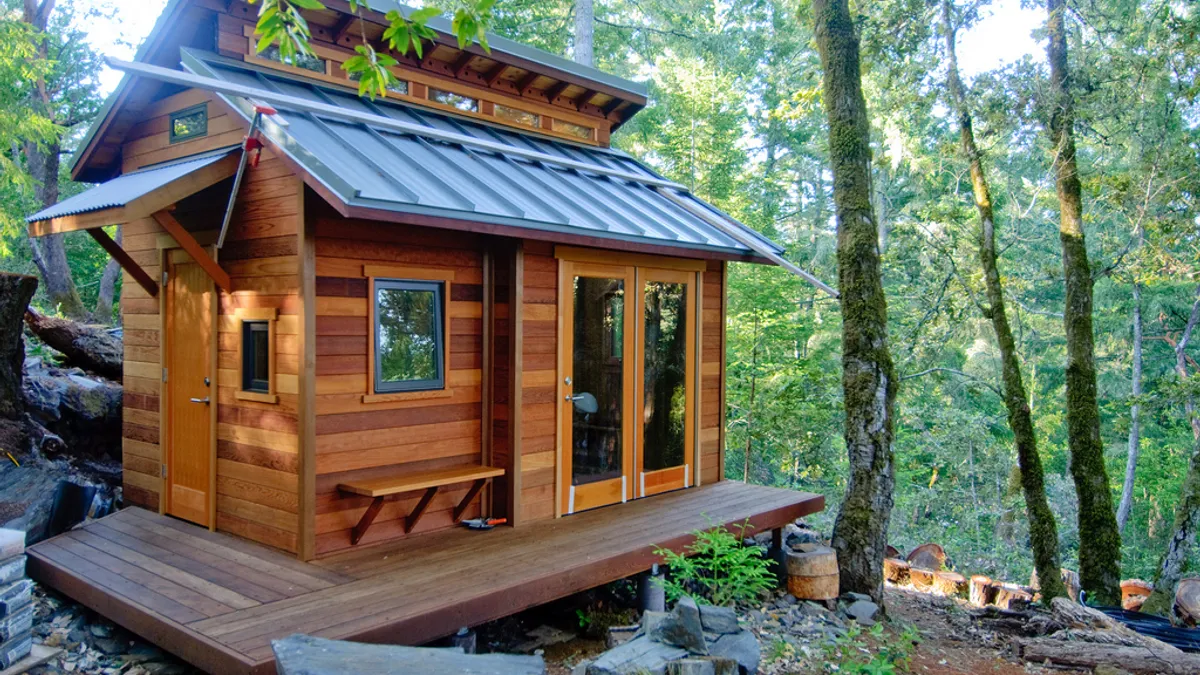Builders across the U.S. are boosting their bottom lines by creating niche specialties that fill unmet consumer demand.
Here are the stories of four contractors who have narrowed their focus to expand their profits.
Beer and building
Ohio builder and craft beer aficionado Blake Compton found his success building brewhouses.
When the third-generation contractor took over his family’s homebuilding company in 2012, Compton turned the firm’s focus to what he likes: beer and technology, he told The Columbus Business Journal.
He soon learned that building for technology companies doesn't involve much complicated infrastructure, but brewhouse construction does.
At around the same time, Ohio laws made it easier to start brewpubs, and the young builder began consulting with brewery owners who were getting into the business. Before long, the newcomers were hiring Compton Construction as their general contractor, and this summer, he started work on his fourth pub.
His niche, however, has come with its challenges. For starters, alcohol-related businesses are more heavily regulated than some others. And beer-making equipment is fairly intricate, so Compton, by working closely with the engineers who design the brewing systems, has learned how to build to accommodate it.
“That’s one area where we really differentiate ourselves now, understanding all this equipment and how it’s hooked up," he told The Journal, noting that breweries have specific water and electricity needs, and a lot of space. “Every brewer in town will tell you they need more space,” he said.
Big market for 'tiny houses'
For years, Upper Valley Builders in Cedar City, UT, built residential cabins and backyard sheds. Gradually, however, more phone calls started coming in from potential homeowners who wanted the company to make those sheds a little bit bigger — so they could live in them.
The interest in “tiny houses” spurred the company to change its name to Upper Valley Tiny Homes and to focus on building homes as small as 128 square feet.
The company isn’t the only one to latch onto one of homebuilding’s hottest trends, but its process is somewhat unique: Customers can order their homes — and select upgrades ranging from a wood stove to stainless steel appliances to a rooftop solar kit — online. The builder also constructs and sells homes on spec.
The company gives buyers of the pre-fab homes the option of sizes — from 8 by 16 feet for a base price of $22,000, to 16 by 28 feet for $80,000. Extras cost between $135 for a kitchen backsplash, to $12,000 for a 28-foot roof solar kit. Floor plans, the company said in a press release, include full-size kitchens and bathrooms, storage space and roomy bedrooms, despite the small square footage.
Not all builders of tiny homes are pushing an affordable product, however. Forbes reported earlier this year that a slew of contractors are constructing high-end, luxury homes as small as 200 square feet and as expensive as $345,000.
Special needs
A developer of affordable housing in Indianapolis is filling a growing need for apartments that can accommodate residents with "special needs" — who building company BWI considers as those with mental or physical disabilities, seniors, children aging out of foster care, low-income single parents who are working on their college degrees, and more.
“We like to say we are a developer with a purpose,” company founder Gary Hobbs said.
The strategy is paying off: Fortune magazine named BWI as the 16th-fastest growing, urban-focused U.S. company in 2013.
Solutions for extended families
Shreveport, LA, design/build remodeler Jeb Breithaupt also works with families as part of his home-improvement business.
Breithaupt’s firm, JEB Design/Build, has added apartments onto the homes of families with adult children so they can live in separate quarters at their parents’ houses.
In a column for The Shreveport Times, Breithaupt described an apartment that he attached to a couple’s home: It has a separate entrance, a small galley kitchen and a roomy bedroom and bathroom. The adult child who lives in it is “just steps away from parents if she needs them or just wants to see them,” according to Breithaupt, who calls the apartment “a practical way for a homeowner to accommodate an adult with special needs who wants some independence but still needs some help from her parents.”
A bonus — and an extra selling point — Breithaupt noted, is that the apartment can be converted at any time into a suitable, temporary home for a new college graduate who wants to live with parents while looking for a job; for elderly parents who are ready to downsize and need to be close to family; or for families with multiple generations living under the same roof and raising children and grandchildren together.
He said the addition is an easy sell: “Most everyone I know who has opted for living with extended family is happy to have their parents, adult children or grandchildren together,” he noted. “But too much togetherness, I’m sure you’ll agree, can lead to too much noise, too little privacy, too few opportunities for couples to hang out alone, and, unfortunately, too much stress.”




















